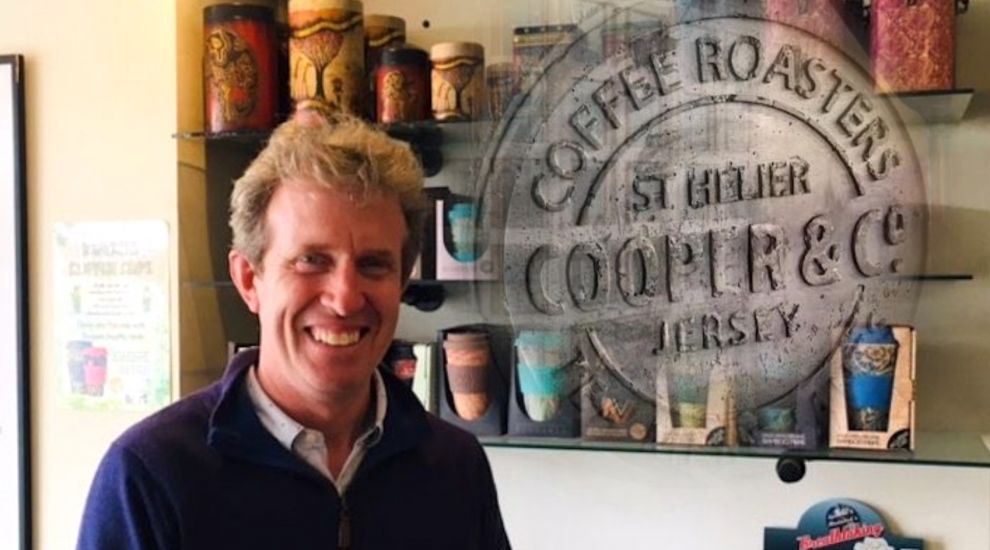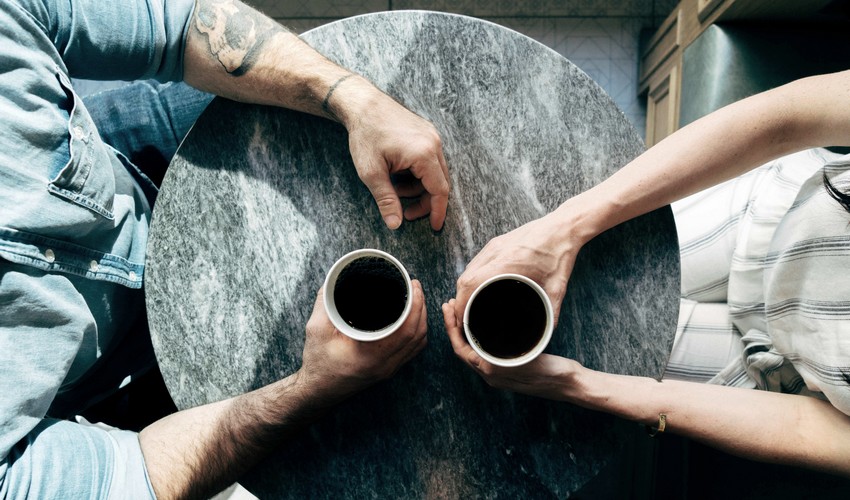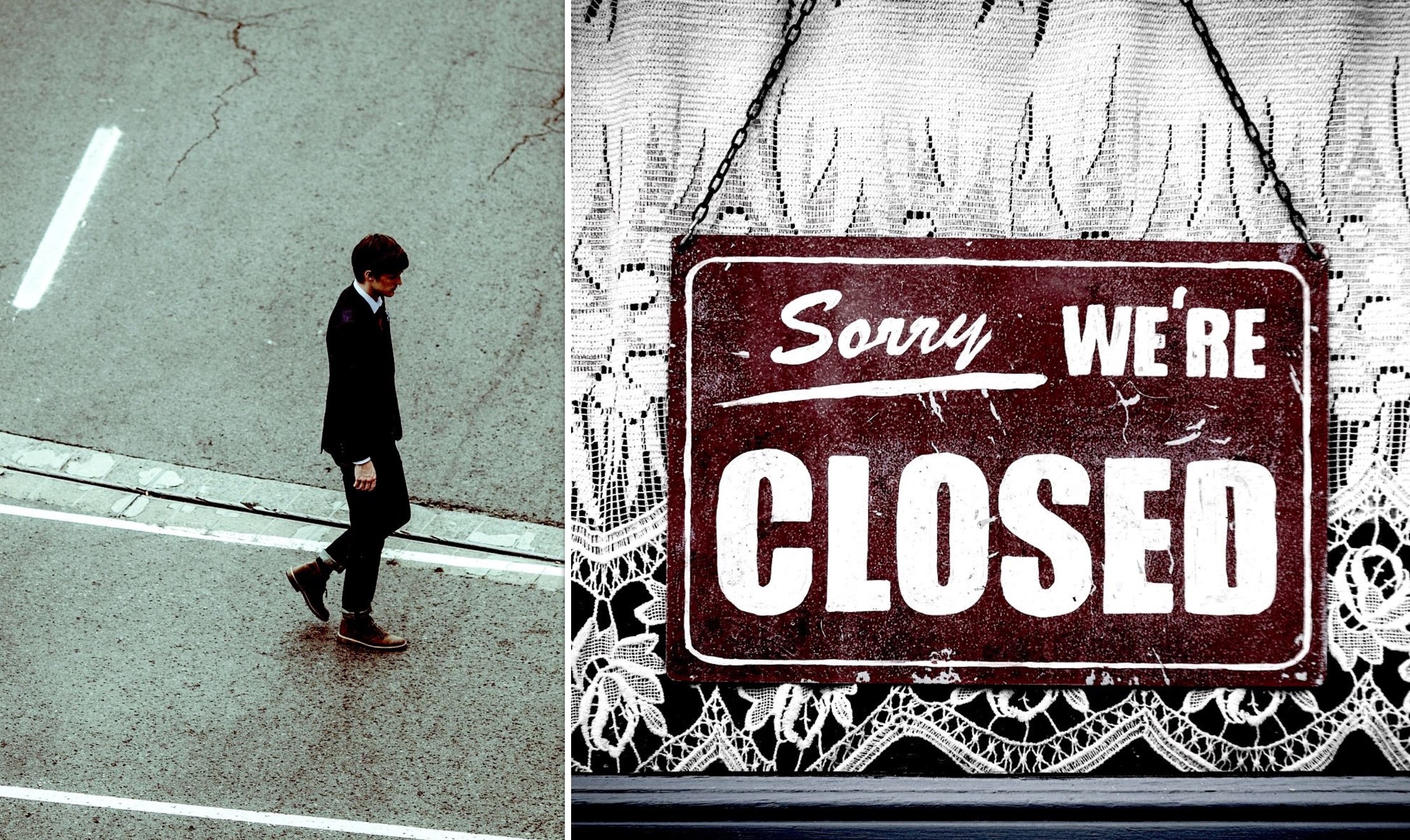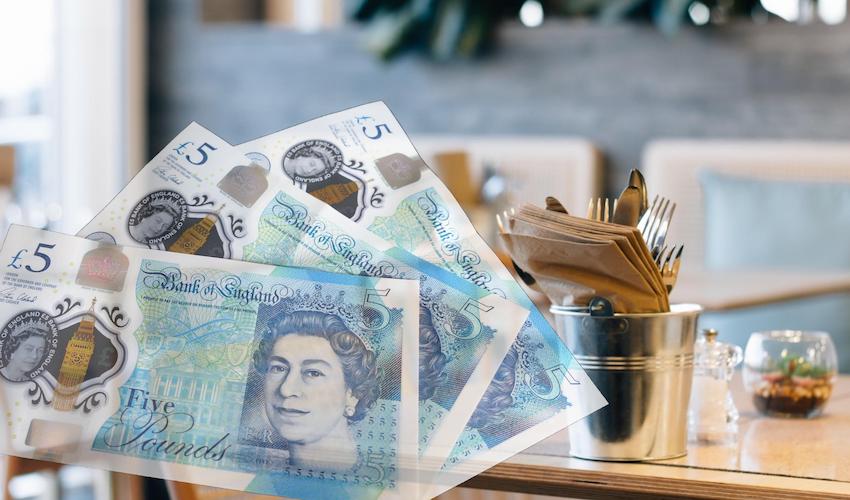


You might argue that Jersey has, so far, avoided the very worst of the health crisis caused in other countries by covid-19.
But the economic problems here have been serious, and businesses are going to continue to need support, particularly in the retail and hospitality sectors.
Today, one of those businesses sets out in detail how they adapted to keep their trade alive. David Warr is the owner of Cooper & Co...
"Cooper’s is a brand that has been in Jersey for 130 years - we’ve survived two world wars, the Spanish flu pandemic, the great depression, the meltdown of global finances on numerous occasions and we intend to survive the extraordinary economic impact of the covid crisis.
I’m not sure what my predecessors thought when they faced such extraordinary circumstances; all I know is that they must have done something right. Their legacy is the fact that the brand still exists today whilst many others have fallen along the way.
Strangely, although I’ve been in business for 30 years the impact of COVID has been such that it has, on occasion, felt like day one of a new business. This is despite the fact we have in place a good deal of infrastructure in the form of cafés, a shop, a website plus a roasting and packing operation, an office and of course plenty of people. The question in such a dynamic market place is, how do we reconfigure all of this in what is now called 'the new normal?'

Pictured: "...from late March to the first week of June our revenue stream for three cafés was zero."
Do we still need all of it and if not can we use these assets in new ways?
The run-up to lock-down was traumatic. Our customers became frightened a week before any official announcement was made. Our steady and relatively predictable revenue stream fell off a cliff; our costs though didn’t. We were haemorrhaging cash and three stark choices faced us. It was over for Cooper’s; we borrowed from our bankers or we re-capitalised using our own funds. Thankfully we were able to re-capitalise as, from late March to the first week of June our revenue stream for three cafés was zero. In addition, payroll co-funding from Government and delays in paying Social Security has enabled us to keep our 21 full time employees and conserve cash to ensure our suppliers get paid and we can continue to trade.
Although we were physically closed, we were still very much alive on-line. A decision we took a couple of years ago to invest in our on-line and social media presence by employing an in-house marketer to manage this aspect of our business was about to pay off. On-line sales jumped 1500% overnight; the challenge now was to turn these orders around as quickly as possible. Our retained employees saved the day whilst at the same time learning a whole lot more about the business. We had inadvertently given them a significantly new knowledge base.
Another part of our business that increased dramatically were our sales into supermarkets and local independent stores. We were selling in one month what we’d normally sell in 6 months; the level of local support was quite extraordinary. It also highlighted the fragile nature of “just in time” deliveries from the UK when normal supply chains are cut.

Pictured: "An element of the shut-down that I struggled with was how our normally vibrant cafés turned into soulless empty spaces."
The fear induced by this whole pandemic has also been extraordinary. Not only were our customers frightened about coming out but so too were our staff. They were, after all, being asked to come to work despite the very strong message of “stay at home”. Not having face to face contact with customers alleviated some of the pressure. Introducing additional cleaning, masks and gloves also helped, however, there was still the issue around distancing when attempting to fulfil orders. We managed to resolve this by ensuring that the same people worked together on the different shifts; this gave a degree of social confidence. So much of this pandemic has been played out in the mind.
An element of the shut-down that I struggled with was how our normally vibrant cafés turned into soulless empty spaces. Seating restrictions meant chairs and tables were stacked up; random floor markings created uncertainty; it was a complete shambles. I was determined that when we re-opened we were going to look and feel like a welcoming café despite all the physical restrictions we were going to have to adhere to. So, during shutdown I made sure the front of our Halkett Place shop remained gleaming. I hired a decorator to repaint the frontage. We ordered new chairs and resurfaced a number of tables. Working with St. Helier Parks and Gardens we re-introduced some upcycled planters at our Waterfront café. Finally, copying the local pharmacy, we introduced Perspex screens. This from the staff’s perspective was probably the most re-assuring thing we could have done.
Come the first week of June we re-opened Halkett Place and our Castle Quay cafés. The whole set-up looked professional. It gave confidence to our customers as well as to our staff. On top of that our customers have become familiar with the new normal from their shopping experiences in supermarkets - a complete transformation from when we went into lock-down.
As I write this blog we’re just over 4 weeks past re-opening. Our significant food-service business is still in tatters although every week it quietly improves as more cafés and restaurants re-open. However, until our visitor economy revives this part of our business will continue to struggle.

Pictured: "...until our visitor economy revives this part of our business will continue to struggle."
Two of our cafés are being slow to bounce back. One sits in the International Finance Centre where we still await the return of office workers; the other situated in the Co-op Grand Marché is also struggling where an older demographic remains cautious about coming out.
Our Waterfront café though has proved to be a shining light. Sitting within a large residential area where many of those office workers currently reside and effectively being a hub for the area has meant that we’ve seen a very quick bounce back to near normal levels of trading.
The surprise for me has been the bounce back of our retail outlet in Halkett Place. Although our internet sales have dropped post shut-down, the combination of shop and retail are now consistently at the top end of pre-COVID. The shut-down period has meant that our on-line visibility locally has increased dramatically and coming to Town for supplies has become much less important. The traditional high street was already in trouble pre-covid; this shutdown has simply accelerated that decline. I still wouldn’t underestimate the demand for a shopping “experience”, however, “experience” will, I believe, be the key to future strategy. This is why the best smaller local independents will come out of this crisis far stronger than many of the big box companies.
Finally, a whole new market has opened up to us - that of the corporate gift. Large organisations endeavouring to keep in touch with their home-bound workforce have created a gift market worth £100s of thousands of pounds and are keen to “support local”. A couple of new “gift ideas” that we placed on our website have been picked up on and from apparently nowhere we’ve been able to tap into a whole new eco-system.
Pictured: "Although our internet sales have dropped post shut-down, the combination of shop and retail are now consistently at the top end of pre-covid."
So how did we get to where we are today? Well, firstly we’ve been fortunate that coffee has become such a big deal in people’s lives, so serendipity has played a large part. We got involved in developing our own cafés because the visitor economy, which amounted to 80% of our overall business, has been in decline for 20 years. The competition in this area meant we were in a race to the bottom on price, a race we simply couldn’t win. There are always those who will support our
quality brand, however, too many hospitality outlets under pressure on their room rates have to find cheaper solutions than we are able to offer. There will be long term consequences to this strategy -the lack of investment in new hotels being the most obvious.
The long-term strategy of diversifying our business has definitely had some merit. The lock-down though has highlighted where the weak spots are, whilst at the same time it has given us ideas as to where new opportunities lie. What it has taught me is that the customer is not dumb. If you demonstrate genuine empathy and there is a sincerity about your brand, you will give yourself a fighting chance.
It’s not about making millions, it’s about everyone getting a fair share of the economic cake: ensuring those who supply us get a fair and sustainable price; to the end consumer who appreciates quality products and a speciality experience for which they are also willing to pay a sustainable price. It’s about relationships, it’s about trust and ultimately leaving a legacy from which others benefit long after the baton has been passed on."
This article first appeared on Cooper's website here.